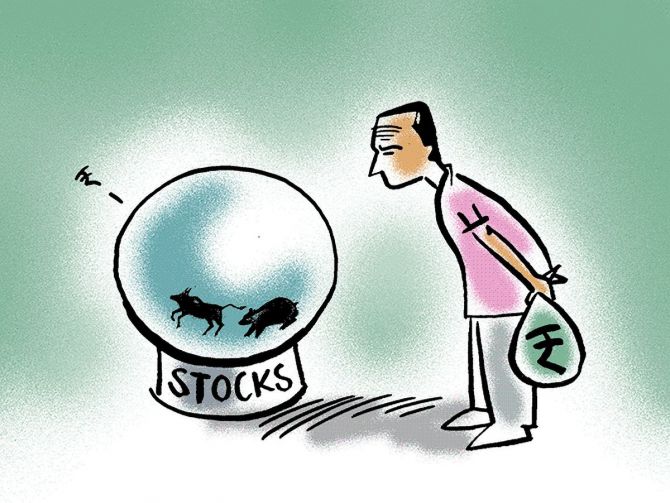UBS, Credit Suisse see emerging markets doing well next year, but expect India to underperform, given its rich valuations.

Emerging market (EM) equities are likely to outperform in the next few months, but India’s prospects look less attractive because of its rich valuations, according to estimates of two of the top European brokerages.
UBS believes that global equities, particularly EMs, are likely to outperform in the coming 3-4 months, before US equities catch up from the second quarter of 2021.
The brokerage is neutral on India, and has estimated an earnings per share (EPS) growth of 25 per cent for 2021 and 15 per cent for 2022.
It is overweight on South Korea and Japan, but underweight on China, Taiwan and Hong Kong.
It sees the S&P 500 rising to 4,100 next year, a 13 per cent rise from current levels.
“Although growth and earnings should rebound in 2021, recent performance has pushed (India’s) valuations into less attractive territory, unlike ASEAN,” said UBS, adding that the progress on the reforms front, the size of the Budget deficit and easing of lockdowns were factors to watch out for.
Credit Suisse expects EM assets, both bonds and stocks, to outperform and the US dollar to continue to weaken.
It believes that the stimulus measures since the beginning of the pandemic together with the economic recovery will support financial assets, and equities in particular, in the year ahead.
“Equities continue to offer attractive return prospects, particularly compared with low-yielding bonds.
"We expect emerging market equities to catch up and see upside in German stocks.
"Our preferred sectors include healthcare and materials, with additional opportunities gradually emerging in cyclical sectors as the recovery broadens,” Credit Suisse said.
The brokerage, however, had an underperform rating on Indian markets: “Indian economy appears to be recovering from the virus-induced recession despite Covid-19 being not completely under control.
"However, we remain underperform on the market due to its expensive valuation, relative to other Asian markets.”
UBS estimates that the Indian economy would have lost about Rs 20 trillion ($265 billion) between April and September due to the pandemic and the ensuing mobility restrictions.
While economic activity appeared to be returning gradually to pre-Covid levels, the biggest challenge for India would be to get consumption back on track amid the virus fear, income uncertainty (job losses and/or reduced income levels) and a conservative policy response.
The brokerage expects India’s real GDP to contract 10.5 per cent in FY21, but bounce back to 10 per cent growth YoY in FY22 and stabilise close to 6.2 per cent YoY in FY23.
“Our baseline forecasts assume that consumption growth will normalise (but remain below trend) as both employment and income growth recover on normalisation in economic activity and hopes of pandemic coming under control after a vaccine is available,” UBS said.
While private corporate capex recovery is some time away, the brokerage says policy measures to boost public capex, especially infrastructure spending, could be the next catalyst for growth: “We expect India and Indonesia to execute on already announced reforms in the coming quarters.
"These help support our growth projections going into 2022.”
The rising fiscal deficit this year could lead to elevated public debt to GDP in India, thus, raising concerns, the brokerage warns: “A greater focus on privatisation could be explored to help keep a check on the fiscal slippages without constraining government spending.”












 © 2025
© 2025